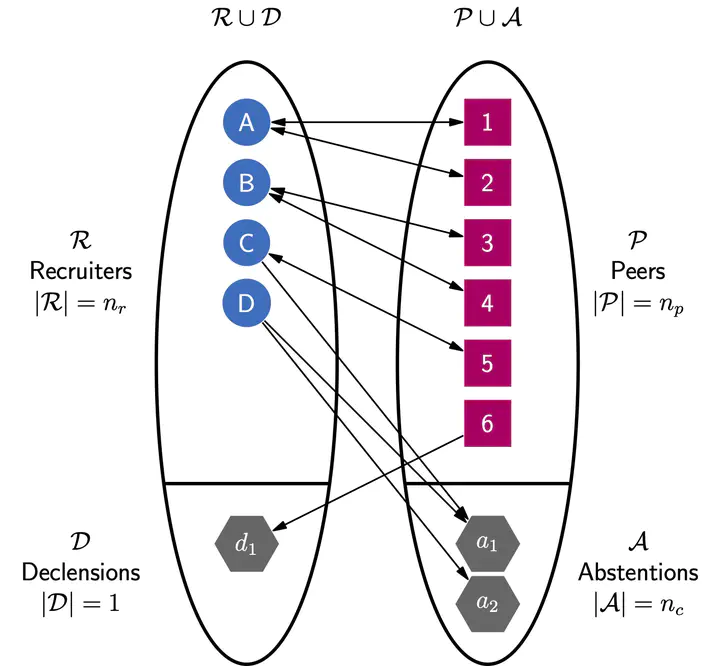A Bayesian framework for modelling the preferential selection process in respondent-driven sampling

Abstract
In sampling designs that utilize peer recruitment, the sampling process is partially unknown and must be modelled to make inference about the population and estimate standard outcomes like prevalence. We develop a Bayesian model for the recruitment process for respondent-driven sampling (RDS), a network sampling methodology used worldwide to sample hidden populations that are not reachable by conventional sampling techniques, including those at high risk for HIV/AIDS. Current models for the RDS sampling process typically assume that recruitment occurs randomly given the population social network, but this is likely untrue in practice. To model preferential selection on covariates, we develop a sequential two-sided rational choice framework, which allows generative probabilistic network models to be created for the RDS sampling process. In the rational choice framework, members of the population make recruitment and participation choices based on observable nodal and dyadic covariates to maximize their utility given constraints. Inference is made about recruitment preferences given the observed recruitment chain in a Bayesian framework by incorporating the latent utilities and sampling from the joint posterior distribution via Markov chain Monte Carlo. We present simulation results and apply the model to an RDS study of Francophone migrants in Rabat, Morocco.